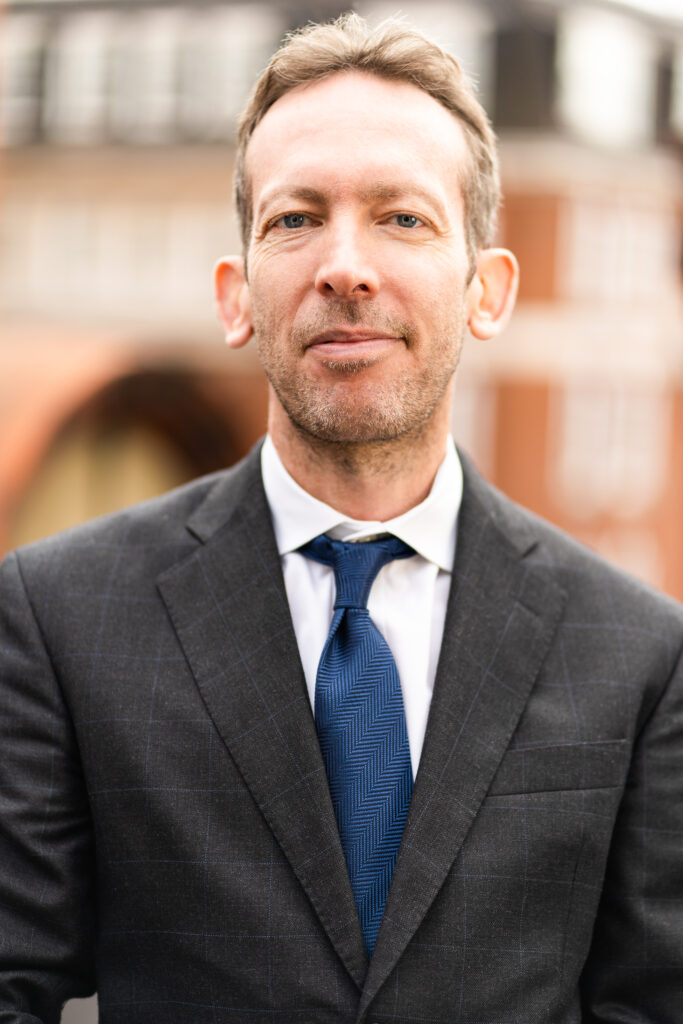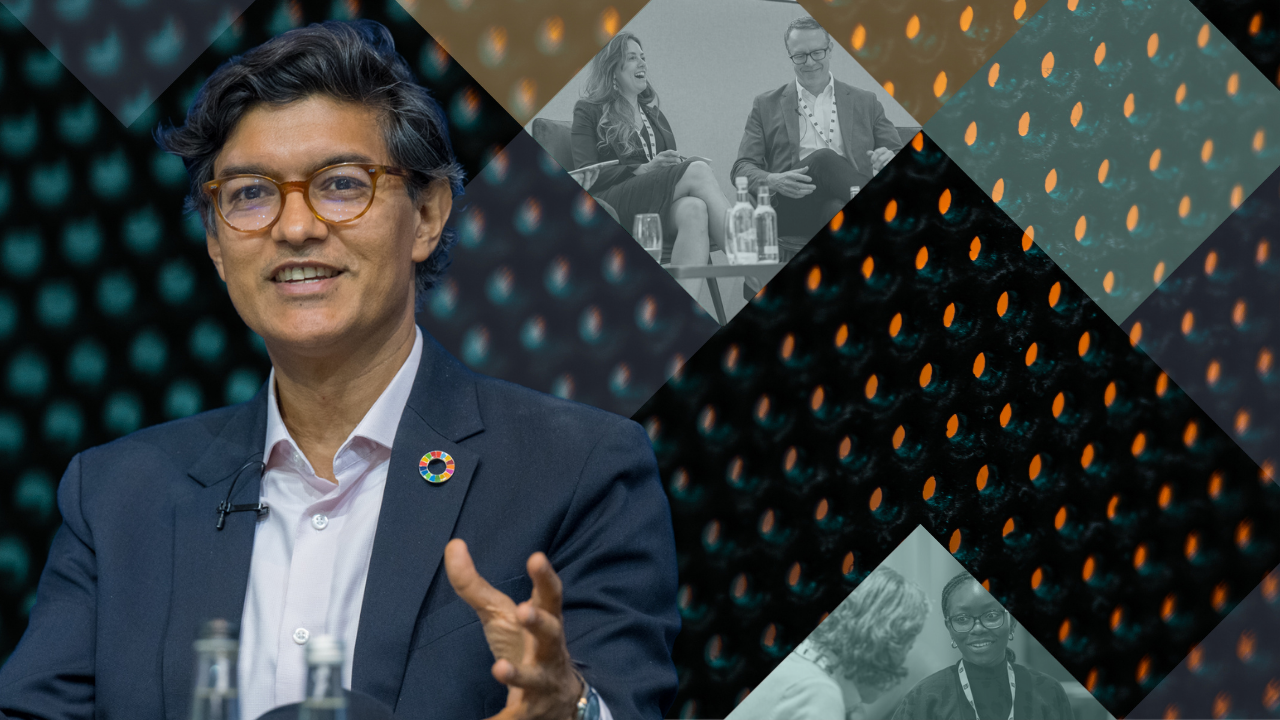Future trends fund manager on investing in global companies, the ‘virtuous circle’ that is innovation and where fish and chips fits into the equation
Heptagon Capital is a private investment firm with $14.4 bn of assets under management, founded in 2005. The firm partners with a range of asset managers and manages funds in-house (including the future trends and European focus equity funds) as well as discretionary mandates. The firm has offices in Dubai, London, Malta, Stockholm and Tel-Aviv.
Alexander Gunz is a Fund Manager at the firm, having joined in 2011. His primary responsibility is managing the Heptagon future trends strategy. Along with regular thematic articles, Alex also produces the future trends blog and writes Heptagon’s monthly ‘View from the Top’ macro commentary.
Alex started his financial career in 1997, holding senior roles at JP Morgan and Friedman Billings and Ramsey, after earlier positions at Hoare Govett and Credit Suisse, where he became a top-ranked analyst. He has a BA in PPE from the University of Oxford and a master’s in English literature from Queen Mary College, University of London.
What’s the geographic split of the Heptagon future trends fund?
Roughly 80 percent US, 20 percent European by listing. The important caveat here is that where a company is listed means very little. The businesses we invest in are typically global. For example, we’ve owned Novo Nordisk and MasterCard since the inception of the fund. Novo Nordisk is headquartered in Denmark, but gets less than 1 percent of its revenues from Denmark (the US and China are its two largest end markets), while MasterCard is listed in the US but operates pretty much in every geography in the world.
Describe your investment style
We look for businesses exposed to long-term future trends: trends that will grow in importance broadly regardless of what’s happening to global GDP and where regulation or government intervention, if present, are tailwinds rather than headwinds. We then look for the best business within each thematic area: pure play businesses, that have dominant market positions and that can sustain leadership with some form of competitive advantage or moat. We put a lot of emphasis on innovation and research and development (R&D). We ask: What is R&D as a percentage of revenues? and What are businesses doing to attract and retain the best personnel?

The winning formula, we believe, is to identify high-quality, sustainably oriented management teams that over-allocate to innovation (organically or via judicious M&A) so that innovation drives market leadership. Market leadership drives free cash flow generation, which is the key financial metric for us. That free cash flow enables continued innovation, forming a virtuous circle effect.
Does the future trends fund mean you are swayed towards AI?
This is (and always has been) a multi-thematic fund, not an AI fund. We invest in everything from cloud to wind and fish to chips.
Which screens do you use?
Firstly, this is an Article 8 fund, so we have a very clear set of exclusions (weapons, gambling, alcohol, tobacco, oil, mining, nuclear etc). Equally, investing in future trends means that the businesses we own naturally tend to align with the UN’s Sustainable Development Goals.
Secondly, we do not own loss making businesses. One key learning for us – other than avoiding the hype, which also matters – is that only businesses that are able to generate free cash flow sustainably will ultimately survive.
Another key differentiator is we only own pure-play businesses, so we’re generally wary of conglomerates.
The other factor is we typically want a business that is number one or number two in its market. For example, MasterCard is clearly second in the market after Visa, though it has massively outperformed Visa in recent years and that’s partly why we own it. We are also attracted by its long-thematic runway: only about a quarter of all payments globally by volume are done digitally today.
Do you look at ESG scores when considering investing and which providers do you use?
A sustainable mindset means having ongoing engagement with management and why we participate actively in proxy voting. To us, sustainability really begins with governance. You want to have management teams you can stare in the eye metaphorically and trust and believe are good stewards of your capital.
MSCI is our external provider but we use it more as a sanity check than a guiding factor. A statistic we are very proud of is that, as of 30 September 2024, 71 percent of the fund received either an AAA or an AA rating from MSCI.
What’s your active share ratio?
Over 95 percent.
And your minimum market cap?
There’s a soft limit of $1 bn. The median market cap in our fund is about $50 bn, but there’s quite a broad spectrum from $8 bn to $500 bn. The sweet spot would be $20 bn to $40 bn: a company that has proven itself but is not necessarily well understood by the investment community.
What’s your average holding period?
Potentially indefinite, but the average holding period is 50 months.
How has the fund performed?
As of 30 September 2024, the fund has produced 11.1 percent annualized returns since inception. In the last three years, performance has been more challenging as we don’t own the ‘magnificent seven’ [Alphabet, Amazon, Apple, Meta Platforms, Microsoft, Nvidia, and Tesla].
Can we focus on some of your larger holdings and why you invested?
- Qanta Services. AI is hugely demanding of power consumption and therefore you need a robust grid infrastructure, not just in the US but elsewhere in the developed world. Most grid infrastructure was built around World War II and was never intended for the amount of data that’s going through it. Add global warming as a factor and that puts stress on ageing infrastructure – you need to upgrade it. That’s where Quanta Services plays a critical role. The business is strongly positioned because it performs almost all of its own work rather than working with third-party contractors. It therefore has a very strong track record of execution and delivery in terms of product. It has a research and innovation-led culture and owns several technical training colleges in the US resulting in a much higher-than-average employee retention rate. Quanta’s current backlog is over $30 bn, which is an all-time high. It’s not just upgrading existing grid infrastructure and connecting new elements into the grid, but also supporting the sheer amount of new demand that is coming – including from AI.
- Palo Alto Networks is one of our largest holdings. We’ve argued consistently that data will have zero value unless you secure it, store it and analyze it. Cyber is a theme we’ve followed for a very long time. In cyber, our contention is that you either have to be a very small and niche player like Darktrace, Avast, or Sophos (all subject to positive M&A during the time we owned them) or you have to have a very strong franchise, which Palo Alto does. It has been arguably more effective than its peers in terms of pioneering this idea of ‘platformization’, creating a one-stop shop from which corporates can buy a large suite of cyber products. Another compelling characteristic is, from day one, all of its products have been cloud native and nearly everything it has done has been developed in-house. To my point about innovation and innovation culture, when you are integrating new products into your suite, clearly if it’s an in-house product it’s much easier to integrate. Also, anyone who has met CEO Nikesh Arora would struggle not to be impressed by him.
- Equinix we’ve owned since close to the fund’s inception. As above, data needs to be stored. Equinix is arguably the best player with regard to the storage theme. Its name is a portmanteau for ‘equal internet exchange’ and effectively it is the largest carrier-neutral data center player. If you have two third parties – like Google and Amazon – and you’re looking to cross-connect their traffic, it makes much more sense to do it in an Equinix data center than anywhere else. It has basically built the largest network of data centers in the world. What is really compelling about the Equinix story is the percentage of customers that buy in more than one geography: 60 percent of the Fortune 500 buy from Equinix, 76 percent of their customers are multi-regional and 64 percent take services in all three regions. They have 268 data centers across six continents today.
- Xylem. The amount of water needed to produce just one semiconductor chip is a remarkable 1,500 gallons and that’s why a business like Xylem is incredibly relevant. Water represents about 1 percent of global GDP, but the other 99 percent requires water to survive. Water demand is increasing, yet water supply is constrained. We like industries where there is a demand/supply imbalance: the world needs to focus on how to improve water supply – an easier problem to fix than managing demand. Xylem has a leading franchise both in water hardware (pumps and filters), but also water software as well. And every single industry globally is digitizing, so having that ability to sell a full suite of water services and then be able to tangibly point out what these water services are saving you (in terms of identifying leaks, recycling water or routing water efficiently) is a demonstrable and sustainable benefit to an end customer.
Do you like to meet management?
Absolutely, it’s an important part of our process. We do between 50 and 100 meetings each year. We try and meet management once in London and once at company headquarters. Meeting management can really help to bring the equity story to life.
How do you prefer to meet management?
It depends on our knowledge of the business and whether we’re invested. Physically making the effort to go and see someone at their headquarters generally makes them more amenable to sharing information and talking to you.
Any companies that stand out as particularly good at investor relations?
Quanta Services is headquartered in Houston, Texas, but once a year they fly their management team to New York and do an investor reception. It’s an informal environment and for two or three hours you can chat to everyone from the CEO, to head of human resources, to the manager of their Midwest division.
Why should companies meet you?
Because we are fundamental, long-term investors and given our thematic approach, we are much more top-down than bottom-up. As a result, the topics we discuss tend to be quite interesting and thought-provoking for all.
Gill Newton is a partner at Phoenix-IR, a London-based investor relations consultancy






